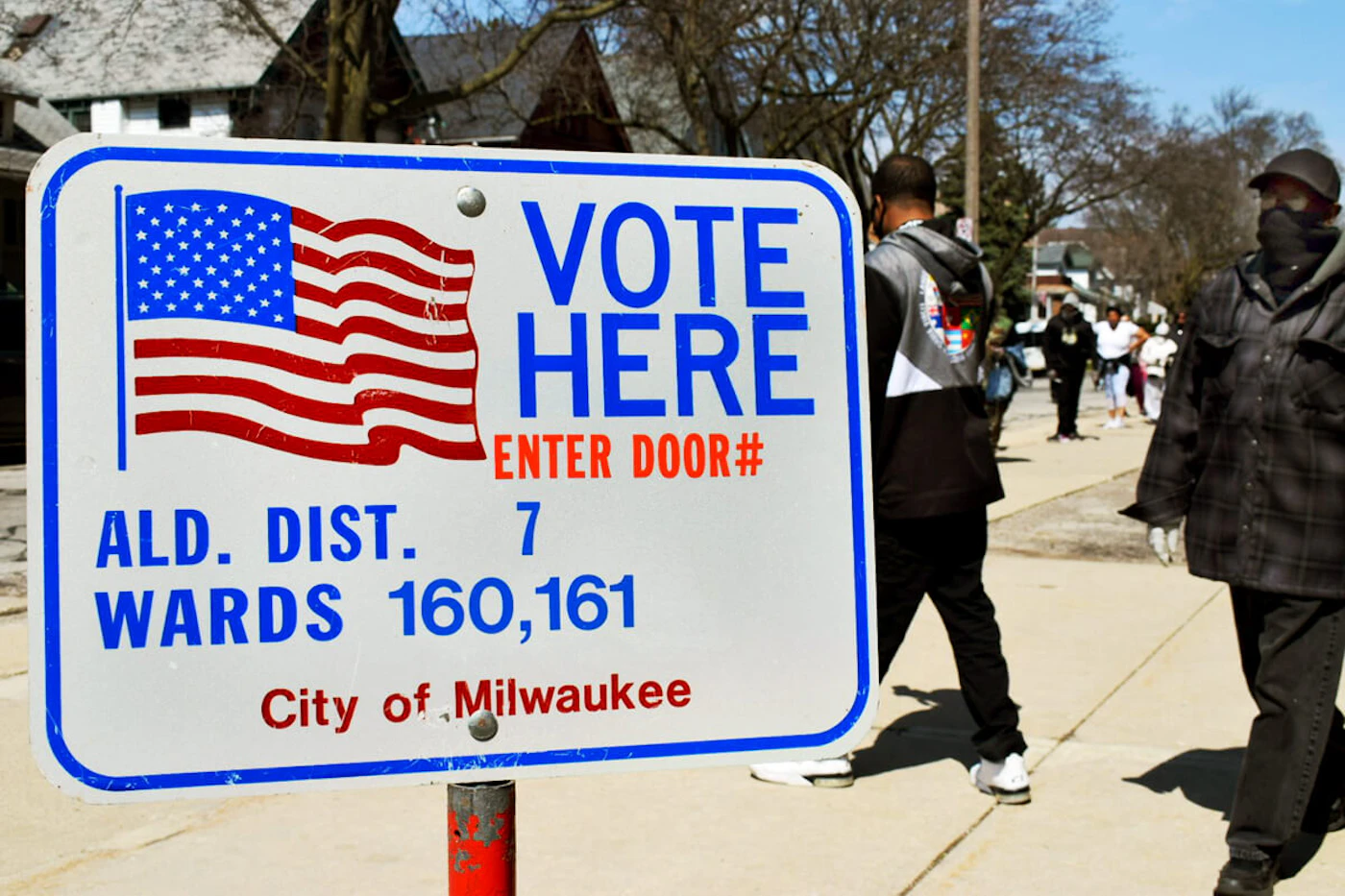With Republican lawmakers passing restrictive bills throughout the country, get-out-the-vote groups are pleading with Biden and Congress to pass federal voting rights protection.
Dozens of get-out-the-vote (GOTV) groups, including a handful from Wisconsin, on Wednesday sent a letter to President Joe Biden urging him use his influence to get Democrats’ sweeping voting rights protection bill passed in Congress as Republican state legislators continue to ramp up their attempts to make voting harder following the 2020 election.
The groups said it’s key for Democrats to pass the For the People Act, which passed the House but stalled in the Senate due to Republican obstruction. The bill would counter many of the restrictive state-level voting bills being pushed through by Republicans throughout the country.
“They don’t like when everyone has equal access to the ballot box,” said Angela Lang, executive director of Milwaukee-based Black Leaders Organizing for Communities (BLOC), one of the groups that signed the letter.
Lang joined other nationwide GOTV leaders in a Wednesday press conference to discuss the letter, which was also signed by the Wisconsin Education Association Council, Wisconsin Working Families Party, and Citizen Action of Wisconsin.
In a press release, the GOTV groups said the For the People Act is a “critical anti-corruption and voting rights package that would counteract these attacks on voting rights nationwide.” Many of the GOTV groups that signed this letter come from swing states like Pennsylvania, Georgia and Arizona, where grassroots engagement in the 2020 election was pivotal for Biden’s victory.
RELATED: Helping Wisconsin Voters Would Be Harder—or Even a Criminal Act—in Some Republican Proposals
Despite the effectiveness of the grassroots organizations in the 2020 election results, leaders who spoke at the press conference agreed that organizing will not solve voter suppression from the root of the problem, especially with such strong legislation and action put forth by Republican lawmakers to slow down their organizing efforts in the name of “election integrity,” despite there being no evidence of widespread fraud. In 2021, 18 states have enacted 30 laws with restrictive voting provisions, with hundreds more being introduced.
“They are labeling it election integrity, but really the entire phrase lacks integrity,” said Devin Branch of the Texas Organizing Project.
Lang referenced Wisconsin’s election in April 2020 that was forced to occur in-person without delays at the height of the coronavirus pandemic led to significant decreased turnout, especially among Black voters. Instead of 182 polling places in Milwaukee, citizens were left to find time to vote at five polling places, some waiting over an hour to cast their ballots.
“There is a direct backlash to when Black and brown organizers try to defy the odds under terrible circumstances,” Lang said. “Anytime we are able to move just an inch forward to actually stand in our own dignity and our own power, we see a backlash to make sure that Black and brown organizers are put back in our place, and that we cannot have our voices heard.”
Josh Wells of CASE Action in Arizona said his organization has helped put many elected officials into place like Biden, Sen. Mark Kelly (D-Arizona), and Sen. Rev. Raphael Warnock (D-Georgia), and now it’s time for the politicians to return the favor by passing the voting rights legislation they promised in their campaigns.
The For the People Act has passed in the House, but it has yet to make it to the Senate for discussion. Most Republicans oppose the bill as they believe states should have the authority to conduct elections, and they claim that these voting reforms would lead to more voter fraud. In fact, many items in the bill would increase election security and accuracy to prevent future instances of voter fraud.
Despite the Democratic majority in Congress, political analysts doubt the probability of this legislation being passed. However, Tiffany Muller, of End Citizens United and Let America Vote Action Fund, said this issue should not be divided amongst party lines.
“The only place that this issue is partisan is in the halls of Congress; people want to get big money out of politics,” she said. Wells agreed and said voting restrictions have the ability to affect all types of voters.





